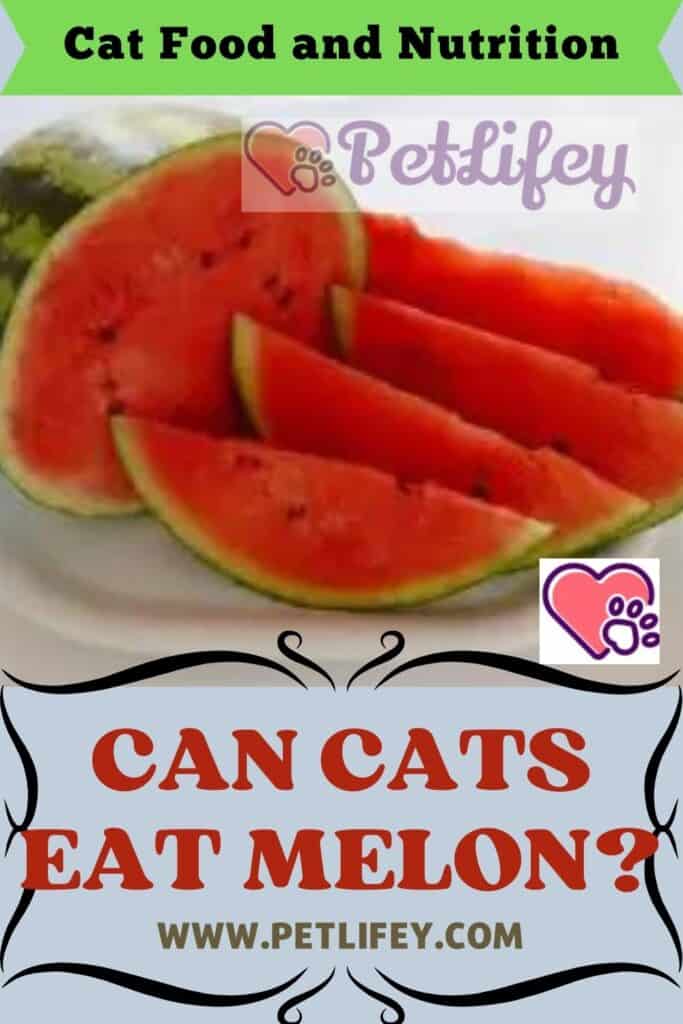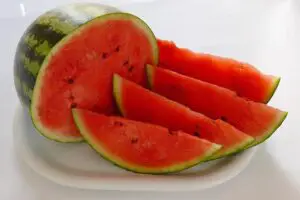
Can cats eat melon? Let’s see what the possible benefits or risks that are related to the consumption of this fruit.
Fruit is a food not strictly connected to the usual diet of our feline, but this does not mean that we cannot include an adequate portion for our pet in meals. Precisely regarding the fact that in every food category there are products that may or may not be included in the diet of our four-legged friend.
In this article we will discuss a product of the fruit category, namely the melon. How many have wondered in the past season, if the cat could enjoy the freshness of the melon. Today we are right here to ask ourselves about this: “Can the cat eat melon? Let’s find out in the next paragraphs.
Fruit for the cat
In order to grow healthy, the cat needs a varied diet, which includes: lipids, proteins, mineral salts, vitamins and water. Therefore, in order to prolong the life of the cat, it is essential to provide it with the right amount of everything it needs.
The cat to date, despite having maintained its characteristic of a carnivorous animal, has nevertheless managed to accept in its diet also foods of vegetable origin, especially if used since a puppy. In fact, immediately after weaning the cat, the animal turns to a varied diet and therefore also the vitamin intake of fruit as its many beneficial properties can promote a healthy diet that will allow the kitten to grow stronger and healthier. .
Fruit has excellent nutritional principles and is rich in fibers, which are very important in the cat’s diet, as they allow the gastrointestinal tract to function properly, promote its hydration capacity, the speed of food transit and the functionality of the digestive tract.
Despite all these excellent properties there are in any case some fruits to avoid as they are toxic to cats, for example: grapes, raisins or sultanas, macadamia nuts, natural and salted peanuts and bananas. And what about the melon? Let’s find out in the next paragraph.
Can cats eat melon?

As is necessary to do for all foods, before giving the animal a portion of a product unknown to him, it is necessary to offer it in very small portions. All this serves to test the tolerability or possible allergy for that particular food.
Letting the cat taste foods that are part of our daily diet is not entirely a mistake, but it must be done very carefully and without any exaggeration. In the case of melon, in summer in particular, it is inevitable not to give our furry friend a small piece of this fresh and thirst-quenching fruit. But the question is, can the cat eat melon? The answer is simple and it is: Yes!
Cantaloupe is an excellent source of dietary fiber, folic acid, vitamins B6, A and C, niacin and potassium, while being low in calories and a rich source of fiber and water. The high water and fiber content of melon also helps promote healthy digestion, helping to prevent problems such as constipation and dehydration.
While vitamins A and C provide a number of cat health benefits, such as their role as antioxidants. Antioxidants capture free radicals, which can effectively slow the cat’s aging process and promote healthy cell function, as well as help reduce the risk of some diseases.
Risks
Although melon can be an excellent fruit to share with our cat, attention must be paid to the quantities, as it contains a good percentage of sugars that damage the health of our cat. Even if we are talking about a natural sugar, it can cause weight gain in cats and generate health problems such as diabetes.
Furthermore, as with other fruits that contain the central stone, the melon contains the seeds, which are not toxic as for other fruits but can be a source of discomfort and cause suffocation in the animal. while as regards the melon puree, the cat should completely avoid both licking it, as on the outer peel there can be harmful bacteria, pesticides and other chemicals but above all it must absolutely not eat it.
Remember therefore that the cat can eat melon as a special treat and not part of their normal diet, but they should never eat the rind as it can cause gastrointestinal upset in the cat as well as having a somewhat heavy impact on the digestive tract. If your cat eats melon and exhibits symptoms such as vomiting, lethargy, or a lack of appetite, we recommend that you notify your vet immediately.






